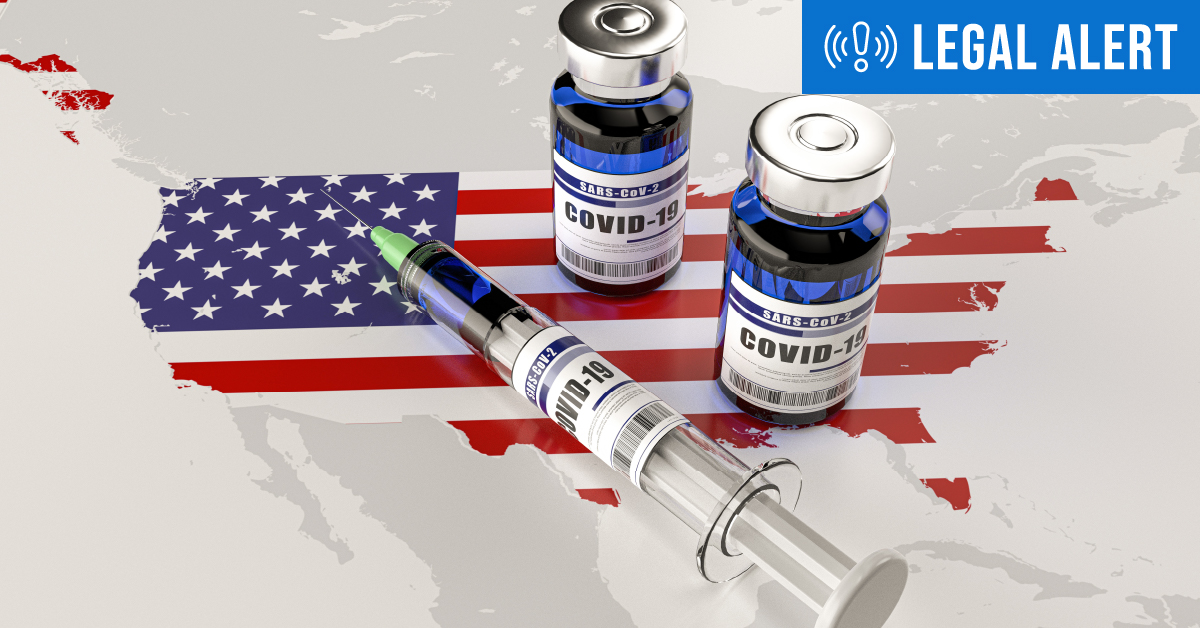A newly introduced bill in the U.S. House of Representatives seeks to make colleges liable for medical expenses incurred by students suffering adverse reactions to the COVID-19 vaccine.
The University Forced Vaccination Student Injury Mitigation Act of 2024, introduced by Rep. Matt Rosendale (R-Mont.), mandates that higher education institutions cover the medical costs for students who were required to receive the vaccine for class attendance and subsequently experienced health complications.
The bill stipulates that colleges must cover these medical expenses or risk losing federal funding from the U.S. Department of Education. “If you are not prepared to face the consequences, you should have never committed the act,” Rosendale stated in a press release, criticizing colleges for enforcing vaccine mandates without sufficient justification.
He argued that students were coerced into receiving an experimental vaccine that did not effectively prevent COVID-19 while posing risks of serious health issues like Guillain-Barré Syndrome and myocarditis.
Rosendale’s bill has garnered support from co-sponsors Reps. Eli Crane (R-Ariz.) and Bill Posey (R-Fla.). Dr. Joseph Marine, a professor at Johns Hopkins University School of Medicine, endorsed the legislation, asserting that vaccine mandates for college students lacked sound medical rationale and did not contribute to campus safety.
He emphasized the need for institutions to take responsibility for any medical harm caused by such policies.
If the bill passes, students would be able to formally request reimbursement for medical expenses linked to adverse vaccine effects.
READ ALSO: Study links Pfizer COVID-19 vaccine to heart inflammation in youth
To initiate a claim, students would need to provide proof of vaccination, a certification from a medical provider linking the vaccine to their health condition, and a detailed account of related medical expenses.
The bill covers a range of conditions, including myocarditis, pericarditis, thrombosis with thrombocytopenia syndrome, and Guillain-Barré syndrome, as determined by the U.S. Secretary of Education.
Once a request is validated, the college would be required to pay the medical costs within 30 days. The timeline for a vote on the bill remains unclear.
This legislative move comes in the wake of widespread vaccine mandates by colleges, beginning with Rutgers University, which was the first to enforce such requirements in the fall of 2021.
Despite initial legal challenges, including a lawsuit by Children’s Health Defense that sought to block the mandate, the university eventually rescinded the requirement in 2023.
In a related case, a federal appeals court ruled this summer that employees in the Los Angeles Unified School District could sue the district over its vaccine mandate, citing that the vaccines do not prevent virus transmission.
The Centers for Disease Control and Prevention (CDC) acknowledges the risk of myocarditis and pericarditis following COVID-19 vaccination, particularly among adolescents and young adults.
READ ALSO: Japanese doctors confirm rare heart condition linked to COVID vaccine
As of late September, the Vaccine Adverse Event Reporting System (VAERS) recorded over 1.6 million reports of adverse events following COVID-19 vaccinations, though it is noted that only a small percentage of actual adverse events are reported through this system.
In a significant move reflecting growing concerns about vaccine safety, Idaho’s Southwest District Health recently voted to cease offering COVID-19 vaccines at all 30 of its healthcare service locations.
Despite initial mandates from over 400 U.S. colleges and universities, as of mid-October, only 17 institutions still require students to be vaccinated for enrollment or campus living.
Advocates against these mandates argue that college students generally face a low risk of severe illness from COVID-19, with data indicating that age is a major factor in determining the severity of the disease.
As the debate continues, critics maintain that colleges imposed overly coercive vaccination policies, infringing on students’ rights to bodily autonomy and informed consent.
The University Forced Vaccination Student Injury Mitigation Act aims to address these issues by holding institutions accountable for their health policies.

 Health5 days ago
Health5 days ago
 Entertainment1 week ago
Entertainment1 week ago
 Crime6 days ago
Crime6 days ago
 Education1 week ago
Education1 week ago
 Health1 week ago
Health1 week ago
 Comments and Issues7 days ago
Comments and Issues7 days ago
 Football7 days ago
Football7 days ago
 Latest6 days ago
Latest6 days ago

